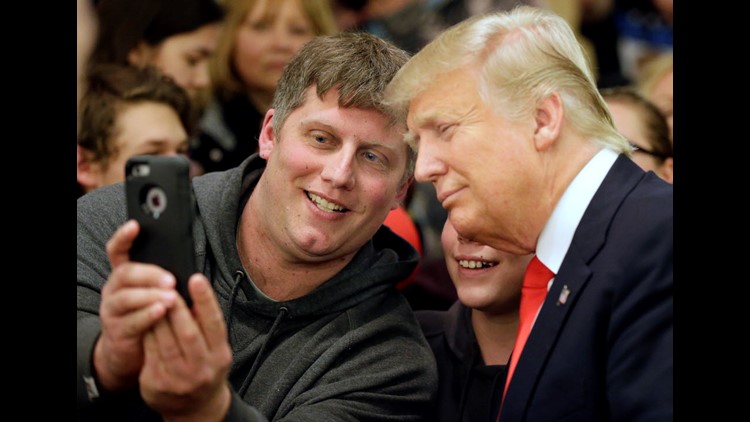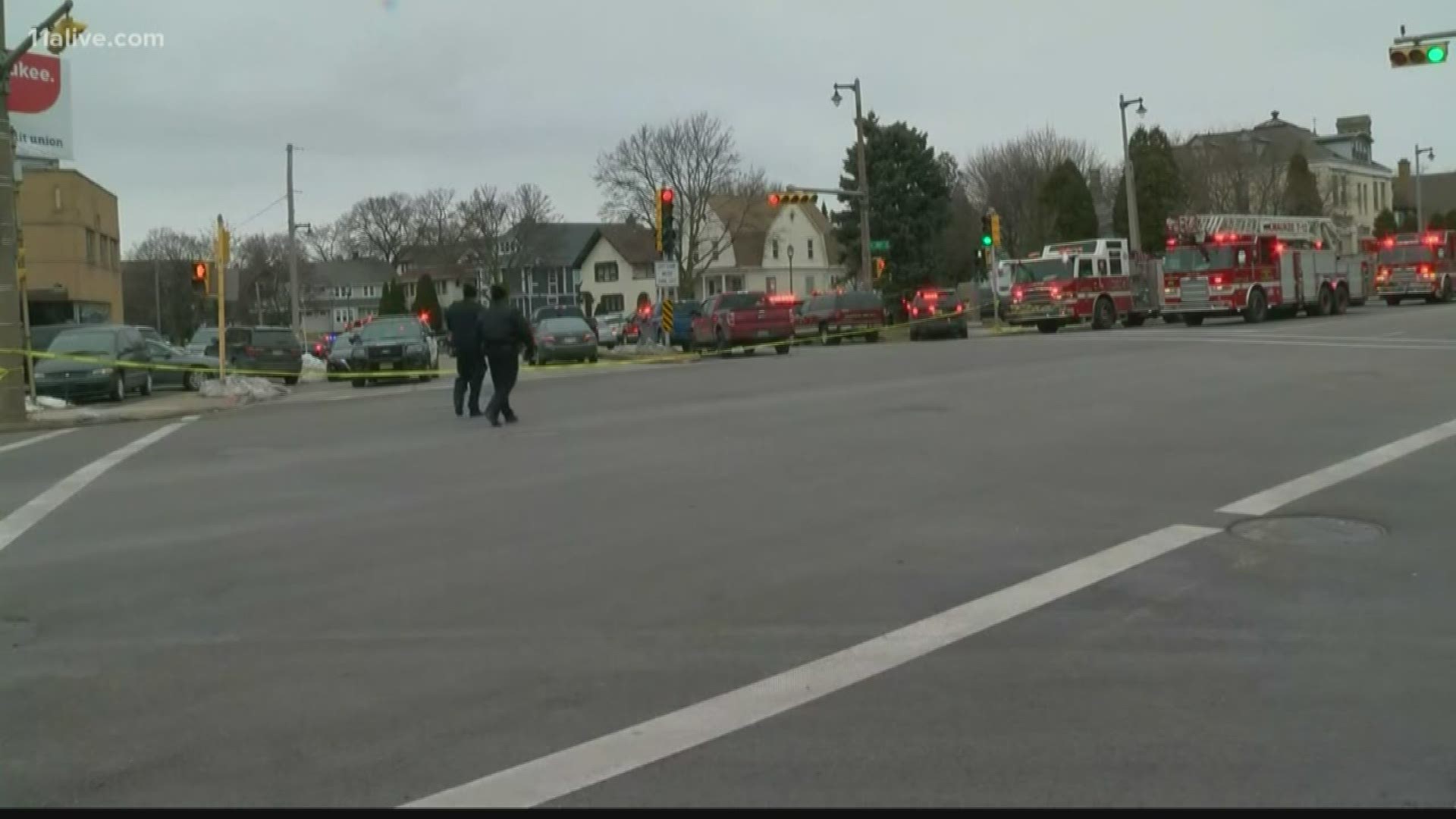JANESVILLE, Wis.— Lifelong Wisconsinite Paul Casler, a rock-ribbed Republican who proudly cast his first Badger State primary vote for Ronald Reagan 36 years ago, hasn’t been this excited about politics in years.
![Trump Appleton [image : 82444206]](http://www.gannett-cdn.com/media/2016/03/30/USATODAY/USATODAY/635949565803318849-Trump-Wisconsin.jpg)
As a passionate Donald Trump supporter, Casler believes the New York businessman has the ability to bring some “honesty” to Washington and an ability to “get things done.”
But as excited as he is, Casler said he has come to understand that the sharp tenor of the GOP race that has been dominated by Trump has been jarring to the sensibilities of family and friends who have become more accustomed to a more polite discourse among political rivals.
“For a lot of the people I know, it’s been quite shocking — especially for the older folks,” said Casler, 54, a state employee who lives in this southern Wisconsin community. “My mother — while she’s never been big into politics—but I think she finds some of what she’s hearing disturbing.”
Wisconsinites preference for a healthy dose of Midwest congeniality — what some politicians and analysts call “Wisconsin nice”— in their campaign season is being tested by the leading contenders, Trump and Texas Sen. Ted Cruz, who have been unyielding as they’ve traded insults.
New polling suggests that Trump’s brash style, which has helped catapult him into the front-runner’s seat, might not be working as well with the more staid sensibilities of the Upper Midwest.
![Ted Cruz races past Donald Trump in new Wisconsin poll [oembed : 82445706] [oembed : 82445706] [oembed : 82445706] [oembed : 82445706] [oembed : 82445706] [oembed : 82445706] [oembed : 82445706] [oembed : 82445706] [oembed : 82445706] [oembed : 82445706]](/Portals/_default/Skins/PrestoLegacy/CommonCss/images/smartembed.png)
Cruz held a 40% to 30% lead over Trump, with Ohio Gov. John Kasich taking 21% of the vote, according to a Marquette University Law School poll released Wednesday,
Perhaps most telling, Trump has not gained ground since the last Marquette poll in February — when Marco Rubio, Ben Carson and Jeb Bush were still in the race. At that point, Trump stood at 30%, Cruz at 19% and Kasich at 8% with the candidates who have since dropped out of race taking 31% of the vote.
![Ted Cruz Wisconsin [image : 82444564]](http://www.gannett-cdn.com/-mm-/23bd1bc478fb9a578e21578882d9477f004354a7/c=98-0-925-707/local/-/media/2016/03/30/USATODAY/USATODAY/635949567883930860-Ted-Cruz-Wisconsin.jpg)
"You have people who are on the right and you have people on the left here in Wisconsin," said Tommy Thompson, the state's former Republican governor who is backing Kasich. "But that old Germanic ancestry still prevails very much. People are nice. They take their politics very seriously. They don't like insults. They don't like people to take advantage by being hyper-critical. There's still a niceness here that hasn't completely worn off."
Among voters who will vote in the GOP primary 23% say they are very uncomfortable with the idea of Trump as president, the Marquette Law School poll found. Fourteen percent said the same for Cruz, while 5% are very uncomfortable with Kasich. Of all likely Wisconsin voters, 55% say they would be very uncomfortable with a Trump presidency.
![Trump backs off call to punish women for abortions if they're banned [oembed : 82443960] [oembed : 82443960] [oembed : 82443960] [oembed : 82443960] [oembed : 82443960] [oembed : 82443960] [oembed : 82443960] [oembed : 82443960] [oembed : 82443960] [oembed : 82443960] [oembed : 82443960] [oembed : 82443960] [oembed : 82443960] [oembed : 82443960]](/Portals/_default/Skins/PrestoLegacy/CommonCss/images/smartembed.png)
Recently, Trump accused Cruz of being responsible for an ad that ran on social media during the Utah primary campaign that featured an old magazine photo of Trump’s wife, Melania, in which the former model posed nude. The ad was paid for by an anti-Trump Super PAC unaffiliated with Cruz's campaign.
Meanwhile, Cruz accused “Sleazy Donald” of being behind an article in the National Enquirer that said the Texas senator has been involved in a series of extramarital affairs. Trump has also offered a veiled threat to “spill the beans” on Cruz’s wife.
![After insulting tweet, Cruz tells Trump: Leave my wife 'the hell alone' [oembed : 82446766] [oembed : 82446766] [oembed : 82446766] [oembed : 82446766] [oembed : 82446766] [oembed : 82446766] [oembed : 82446766] [oembed : 82446766]](/Portals/_default/Skins/PrestoLegacy/CommonCss/images/smartembed.png)
Cruz says his campaign was not involved in the Melania Trump ad, and Trump has denied involvement in the Enquirer story, which Cruz has described as “garbage.”
Trump, who has been campaigning in Wisconsin this week ahead of the April 5 primary, has continued his assault on Cruz on the stump, referring to the senator as “Lyin’ Ted Cruz.” He has also pilloried the state’s Republican governor, Scott Walker, as an ineffective leader after Walker formally endorsed Cruz on Tuesday.
Trump even mocked Walker, who spent portions of his re-election campaign last year criss-crossing the state on a motorcycle, for his fondness of Harley-Davidson gear.
"He doesn't look like a motorcycle guy to me," Trump told supporters.
![Marco Rubio's unprecedented plan to stop Donald Trump: Keep his delegates [oembed : 82444002] [oembed : 82444002] [oembed : 82444002] [oembed : 82444002] [oembed : 82444002] [oembed : 82444002] [oembed : 82444002] [oembed : 82444002] [oembed : 82444002] [oembed : 82444002] [oembed : 82444002] [oembed : 82444002] [oembed : 82444002] [oembed : 82444002]](/Portals/_default/Skins/PrestoLegacy/CommonCss/images/smartembed.png)
Barry Burden, a political scientist at the University of Wisconsin-Madison, said the sharp rhetoric of Trump and Cruz doesn't line up with the political culture in the state.
“A lot of the Republican vote is in the Milwaukee suburbs that is very dense with Republican families,” Burden said. “Those are establishment Republicans who are not going to like messaging about spouses.”
Trump faced tough interrogations this week during calls with three of the state’s most influential conservative talk show hosts, who for weeks have been telling their listeners that Trump’s style was out-of-step with Wisconsin voters.
To be certain, politics has always been tough in a state that has produced a long list of political mavericks on both sides of the aisle over the last century. But the conservative talk show hosts have sought to remind Trump that Wisconsin voters are proud of maintaining a certain level of discourse even when they are battling with political rivals.
![Trump: Going to 'win so much we're sick of it' [oembed : 82446866] [oembed : 82446866] [oembed : 82446866] [oembed : 82446866] [oembed : 82446866] [oembed : 82446866] [oembed : 82446866] [oembed : 82446866]](/Portals/_default/Skins/PrestoLegacy/CommonCss/images/smartembed.png)
“Here in Wisconsin, we value things like civility, decency and actual conservative principles,” WTMJ’s Charlie Sykes lectured Trump while urging him to stop playing the part of the “12-year-old bully on the playground.”
The state has had their share of political dynamos on both sides of the aisle who fit into the role of “Wisconsin maverick,” said Mordecai Lee, a political analyst at the University of Wisconsin-Milwaukee.
Wisconsin’s Republican party launched the early 20th century progressive hero Gov. Robert La Follette, anti-Communist crusader Joseph McCarthy and Walker, who in 2012 defeated a recall effort even as President Obama won the state.
The Walker recall was triggered following his push for Act 10, a effort to limit public employee collective bargaining rights as part of his effort to address a state budget shortfall. At the zenith of the battle between Republicans and Democrats in 2011 over the issue, about 100,000 protesters gathered outside the state capital in Madison to protest. Burden, the University of Wisconsin political scientist, noted that as fractious as the debate was on Act 10, the rhetoric remained largely civil.
![Wisconsin voters [image : 82444684]](http://www.gannett-cdn.com/media/2016/03/30/USATODAY/USATODAY/635949570041452350-Wisconsin-voters.jpg)
The Democrats had Sen. William Proxmire, who issued monthly “Golden Fleece” awards to shine light on wasteful government spending in the late 1970 and 1980s, and the liberal Sen. Russ Feingold, who teamed up with Republican Sen. John McCain to pass bipartisan campaign finance reform and also was the only Democratic senator to vote against a motion to dismiss articles of impeachment against President Bill Clinton. (Feingold, who lost his Senate seat in 2010, is looking to recapture it from Sen. Ron Johnson during this election cycle.)
“Wisconsinites like fighters,” Lee said. “Up to now, at least nationally, Trump had the fighter vote. But maybe what we’re seeing as a result of the argument about wives is that Cruz has become the fighter.”
![Trump, Cruz and Kasich take back vow to support Republican nominee [oembed : 82444072] [oembed : 82444072] [oembed : 82444072] [oembed : 82444072] [oembed : 82444072] [oembed : 82444072] [oembed : 82444072] [oembed : 82444072] [oembed : 82444072] [oembed : 82444072] [oembed : 82444072] [oembed : 82444072] [oembed : 82444072] [oembed : 82444072]](/Portals/_default/Skins/PrestoLegacy/CommonCss/images/smartembed.png)
For some Wisconsinites, April 5 can’t come soon enough.
Rachel Haff, 24, watched Trump supporters and anti-Trump protesters inundate her normally quite Janesville neighborhood earlier this week when the businessman turned White House hopeful held a rally at a nearby hotel.
Haff said she’s never been particularly political, but she knows she’s been turned off by the mudslinging of this election cycle.
“It’s not very Wisconsin-like,” Haff said.
Follow USA TODAY Chicago correspondent Aamer Madhani on Twitter @AamerISmad



